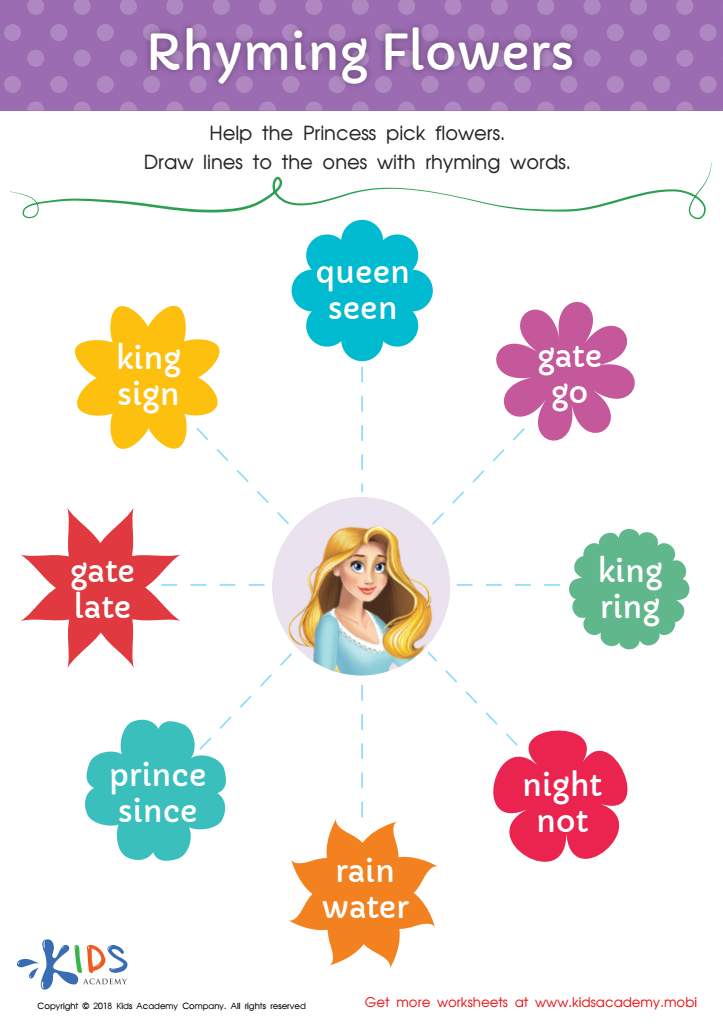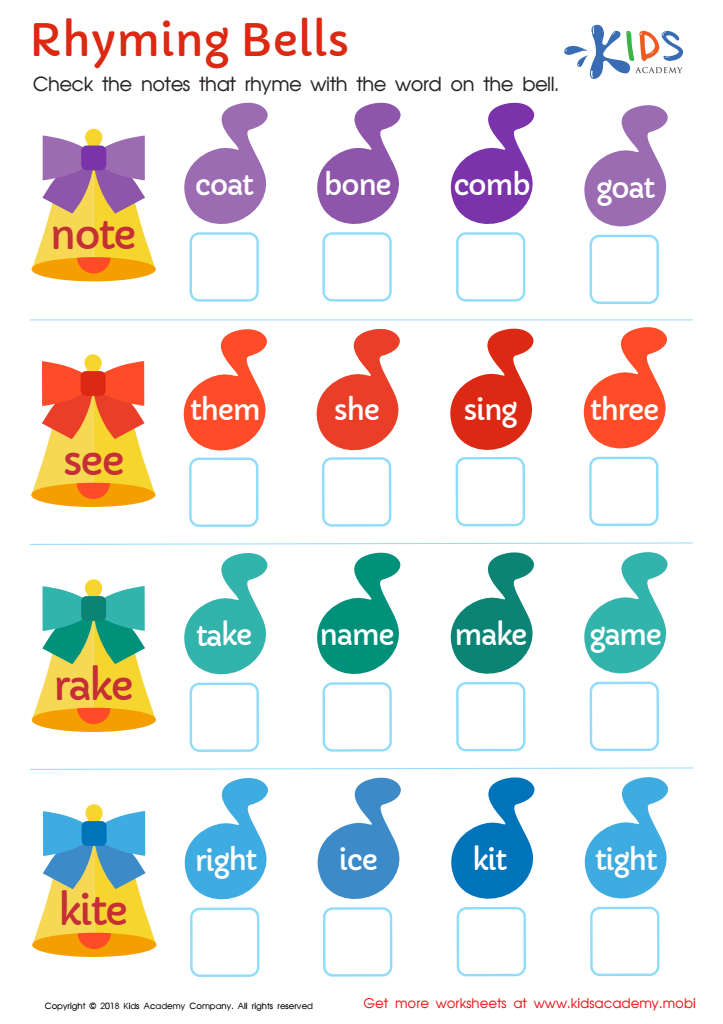Vocabulary enhancement Normal Rhyming Worksheets for Ages 5-7
6 filtered results
-
From - To
Enhance your child's vocabulary with our engaging Normal Rhyming Worksheets, designed specifically for ages 5-7! These fun and interactive worksheets are perfect for young learners eager to explore the delightful world of rhymes. Our carefully crafted activities promote essential language skills, helping children identify, match, and create rhyming words while expanding their vocabulary. With colorful illustrations and simple instructions, children can develop phonemic awareness, boost word recognition, and foster a love for reading! Ideal for home learning or classroom use, these worksheets are a fantastic tool to make vocabulary building exciting and memorable. Start your child's rhyming journey today!


Rhyming Words: Assessment Worksheet


Rhyming Flowers Worksheet


Rhyming Words Rhyming Worksheet


Rhyming Bells Worksheet


First Words: Picture Rhymes Worksheet
Vocabulary enhancement through normal rhyming is vital for children ages 5-7 for several compelling reasons. At this developmental stage, children are like sponges, eagerly soaking up new words and concepts. Rhyming helps them develop phonemic awareness, an essential skill for reading success. When children play with rhymes, they learn to recognize sounds and patterns in language, which aids in decoding unfamiliar words.
Moreover, engaging in rhyming activities fosters creativity and imagination. When children experiment with language through songs, poems, and games, they not only expand their vocabulary but also enhance their cognitive abilities. This creative linguistic practice encourages them to think outside the box and express themselves more effectively, laying a strong foundation for effective communication skills.
Additionally, rhymes can strengthen memory retention. The musical quality of rhymes makes them easier to remember, facilitating vocabulary acquisition and recall. This fun and interactive approach to learning makes it more likely that children will be enthusiastic participants in their own education.
Incorporating rhyming into teaching and parenting strategies not only supports language development but also nurtures a lifelong love for reading and learning. By valuing vocabulary enhancement through rhyming, parents and educators can significantly impact children’s academic and personal growth.

 Assign to My Students
Assign to My Students





















